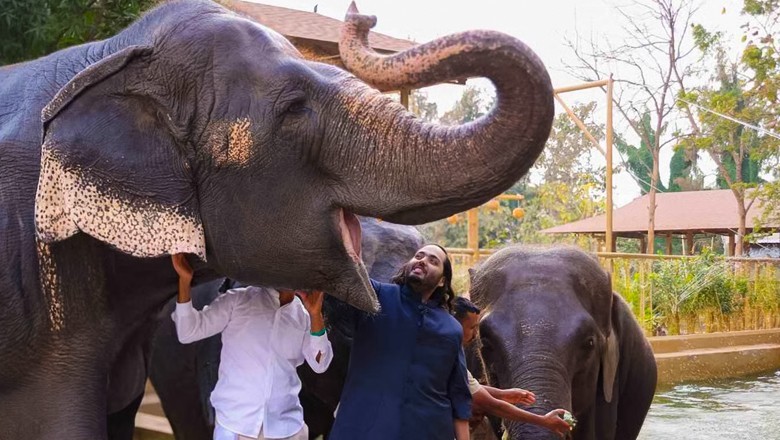India’s wildlife conservation landscape has been thrust into the spotlight after reports surfaced that Vantara, a massive private zoo operated by Anant Ambani, son of India’s wealthiest industrialist Mukesh Ambani, is under investigation. Hailed as one of the most ambitious private conservation projects in Asia, Vantara spans thousands of acres and houses tens of thousands of animals from across the globe.
While the facility aims to rehabilitate and care for wildlife, recent scrutiny has raised questions about legal compliance, animal welfare standards, and ethical management. This article explores the origins of Vantara, the controversies surrounding it, ongoing investigations, and the broader implications for private wildlife conservation in India.
The Origins of Vantara
Vantara was inaugurated with much fanfare, envisioned as a sanctuary rather than a commercial zoo. Covering several thousand acres in Gujarat, the center hosts an impressive array of species, including elephants, tigers, lions, leopards, and exotic reptiles. Designed as a rehabilitation and rescue center, it features state-of-the-art veterinary facilities, including specialized units for large mammals and birds.
Anant Ambani has often spoken about his lifelong passion for animals, citing his commitment to providing care and shelter for displaced or injured wildlife. He claims the center’s mission is grounded in conservation, education, and scientific research, seeking to balance animal welfare with public awareness about ecological protection.
Allegations and Controversies
Illegal Wildlife Imports
Reports from wildlife activists and investigative media have alleged that Vantara imported thousands of animals from multiple countries, raising concerns about potential violations of wildlife protection laws. While the center maintains that all acquisitions were legal and carefully documented, critics argue that large-scale private imports could contribute to unethical wildlife trade practices.
Animal Welfare Concerns
Despite its advanced facilities, animal rights groups have raised questions about whether Vantara provides suitable habitats for all species. The center’s location in a hot and arid region may pose challenges for certain animals accustomed to cooler or more temperate environments. Concerns also focus on the logistics of transporting animals over long distances, as well as their adaptation to new enclosures.
Use of Animals in Private Events
Vantara gained international attention after hosting high-profile private events. Critics argue that showcasing animals during lavish celebrations, even with educational intent, may compromise ethical standards. The center maintains that such events were closely monitored and served to raise awareness about conservation issues.
Legal Proceedings and Investigations
In response to public interest litigations and growing scrutiny from animal welfare organizations, India’s judiciary has ordered a comprehensive investigation into Vantara’s operations. The inquiry will assess the legality of animal imports, evaluate welfare standards, and ensure financial transparency.
Authorities emphasize that the investigation aims to clarify allegations, protect wildlife, and establish accountability. The outcome could set a precedent for regulating private conservation efforts in India, highlighting the need for consistent oversight in large-scale wildlife initiatives.
The Role of Private Conservation in India
Benefits of Private Initiatives
Private conservation projects like Vantara often bring substantial resources and infrastructure that might be beyond the reach of government-funded programs. These initiatives can offer advanced medical care for animals, fund research, and provide rescue operations for endangered species.
Ethical and Regulatory Challenges
However, concentrated private ownership of large wildlife collections raises ethical and governance concerns. Ensuring compliance with wildlife protection laws, maintaining transparency, and providing proper oversight are critical. Without stringent regulation, private projects risk undermining public trust in conservation.
Public Perception and Trust
Public support is essential for the success of any conservation initiative. Controversies or ethical lapses, even if unintentional, can erode confidence and affect broader conservation efforts. Maintaining transparency and accountability is crucial for sustaining both credibility and community support.
Broader Implications for Wildlife Conservation
The investigation into Vantara highlights several key lessons for wildlife conservation in India and beyond:
Stricter Oversight is Needed – Both private and public wildlife facilities must adhere to high standards of animal welfare and regulatory compliance.
Ethical Use of Wildlife – Animals should not be used as decorative elements in private events or for entertainment that conflicts with their natural behavior.
Balancing Wealth and Responsibility – Private wealth can accelerate conservation efforts, but it also carries the responsibility to follow ethical and legal norms.
Policy Development – The outcome of this investigation may inform future regulations governing private wildlife sanctuaries, imports, and rehabilitation projects.
FAQs
What is Vantara?
Vantara is a private wildlife rescue and rehabilitation center in Gujarat, India, operated by Anant Ambani. It houses thousands of animals from across the world and focuses on care, rehabilitation, and conservation education.
Why is Vantara under investigation?
The center is being investigated for alleged illegal wildlife imports, potential mistreatment of animals, and concerns over its operational transparency.
Are private zoos common in India?
Private conservation facilities exist in India, but Vantara is among the largest and most ambitious. They often supplement government initiatives but are subject to strict wildlife regulations.
How does this affect conservation efforts in India?
The investigation highlights the need for ethical oversight and may lead to stricter regulations for private wildlife projects, ensuring both animal welfare and public accountability.
Can private wealth help conservation?
Yes, private investment can significantly advance conservation efforts. However, it must be balanced with regulatory compliance, ethical standards, and transparency to maintain public trust.
Conclusion
Vantara’s investigation underscores the complexity of managing large-scale private wildlife initiatives. While such projects have the potential to advance conservation and rescue endangered species, they also reveal challenges in ethical management, legal compliance, and public accountability.
The case serves as a reminder that even the most well-funded private efforts must operate within clear regulatory frameworks and maintain transparency to earn the trust of the public and the broader conservation community. How India navigates this balance will shape the future of private conservation in the country for years to come.











